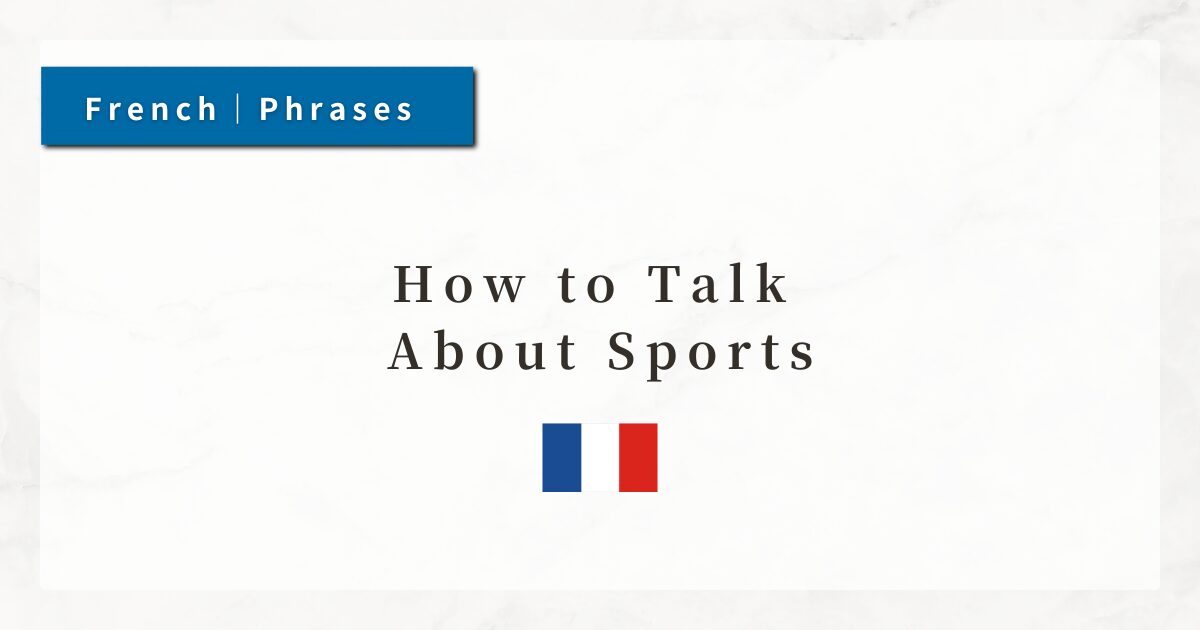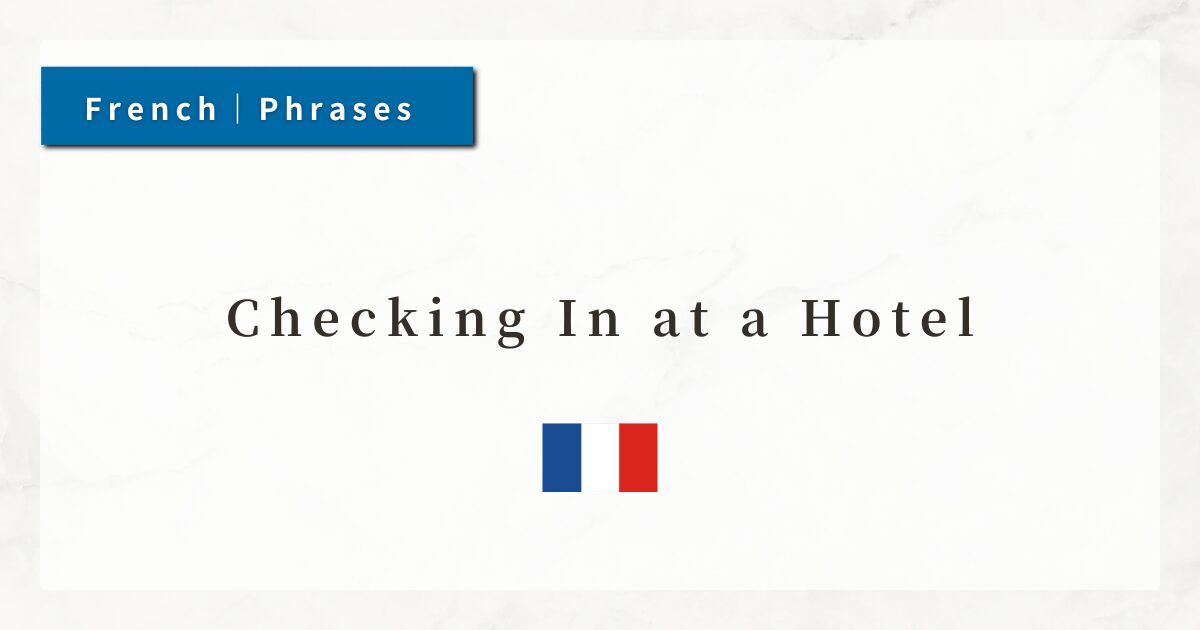#15 How to Talk About Sports|French Hobby Expressions

In casual conversations with friends or colleagues, it is common to ask, “Do you play any sports?”
In French as well, being able to talk about the type of sport you play, how often you play, and why you enjoy it will help your conversations expand naturally.
Here we will learn some essential French phrases for talking about sports, along with commonly used sentence structures and verbs.
Dialogue

Tu fais du sport ?
(Do you play sports?)

Oui, je fais du tennis deux fois par semaine. Et toi ?
(Yes, I play tennis twice a week. And you?)

Moi, je fais de la natation le week-end.
(I go swimming on weekends.)

Tu vas à la piscine ?
(Do you go to the pool?)

Oui, j’y vais le samedi matin.
(Yes, I go on Saturday mornings.)

C’est bien pour rester en forme.
(That’s good for staying in shape.)
1. Basic Expression for Sports
To say “to do/play a sport” in French, the verb faire (to do) is used with a partitive article:
faire + partitive article + sport name
This corresponds to English expressions like “do sports” or “play tennis.” The partitive article changes according to the gender of the noun:
- du
→ before masculine nouns (du tennis, du vélo) - de la
→ before feminine nouns (de la natation, de la danse) - de l’
→ before words beginning with a vowel or mute h (de l’escalade)
2. Expressing Frequency
To explain how often you practice a sport, use the structure:
number + fois par + time period
- deux fois par semaine
(twice a week) - une fois par jour
(once a day) - trois fois par mois
(three times a month)
The preposition par means “per” and can also be used for other activities, such as reading, practice, or commuting.
3. Using “aller à …” and the Neutral Pronoun y
“To go to …” is expressed with the verb aller (to go) and the preposition à.
- aller à la piscine
(to go to the pool) - aller au stade
(to go to the stadium) - aller à l’école
(to go to school)
When the place has already been mentioned in the conversation, the neutral pronoun y is used to avoid repetition.
- Tu vas à la piscine ?
(Do you go to the pool?) - Oui, j’y vais le samedi matin.
(Yes, I go there on Saturday mornings.)
The pronoun y conveniently replaces phrases such as “à + noun” or “dans + noun,” and generally translates as “there” or “to that place.”
Summary
- Tu fais du sport ?
→ Use “faire + sport name” to express playing a sport. - Je fais du tennis / de la natation
→ Pay attention to the partitive article. - Deux fois par semaine
→ Frequency is expressed as “[number] fois par [time period].” - Tu vas à la piscine ? / J’y vais.
→ Use the pronoun y to replace repeated place expressions.




